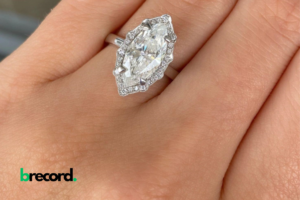How strange however delightful it feels to enter theitspan of Crossword puzzles and look for words amidst twisting and turning clues! In fact, every one gets a bit familiar with such deceptive clues that may brighten or dull the afternoons or afternoons’ respite from routine work. In any case, while working on puzzles you may easily have fun; it will not take long before you are asking yourself whether or otherwise coiled up wearing something essential, or even whether or not you happened to have walked into a riddle that is wrapped with a bunch of pillows and sheets of babies. Let us take you on yet another one of these crazy approximation explanations this one would serve you and focus on crafting this art of unpuzzling these puzzling clues. Stop teasing me; we are going on a grand adventuresome journey filled with categorically intelligent twists and ingenious humor. Not just because of the former, but also the other – shuffling is such great fun.
As we go through the words and the clues, let’s see how these otherwise silly mistakes can elevate your crossword experience from just solving simple puzzles to sharing a good laugh with friends or discovering something new about yourself as a solver.
How To Explain The ‘Silly Mistake’ clue in NYT Crosswords
For example, if you’ve been asked to make a screwy regular occurrence crossword Calgary crossword or workbin, make a screwy regular occurrence crossword, why is everyone else there faking daybook management? This playful phrase pops up in the New York Times Crosswords, challenging solvers to think outside the box.
The challenge is to just have fun as you try and attempt to solve the tougher puzzles which at times can seem to be put in place only to make one fail.
Crosswords are not just word games, they are word puzzles as well and thus one gets much pleasure from combining wit and knowledge in a crossword puzzle. The feeling of accomplishment you get after scaling a steep hill is the value of unlocking a hard clue. So, what is it about this clue that makes it so fascinating? Let us explore more of NYT crosswords and see how fascinating the concept of those mind-boggling words is.
Self-explanatory deliberates on how crossword clues work.
Crossword clues seem to be distributed in the form of riddles inside a puzzle. In each of them, there is a justification of how the answer words or phrases would be devised or arranged including their definition and layout in the grid.
A relatively popular paradigm is that a clue either informs or entertains or even both. “Silly mistake nyt” can indicate two forms of meaning; one as a mistake and yet one still is left in stitches.
The number of squares on the grid for an answer would most often correspond to the length of the answer. This is where the idea of incorporating planning becomes useful; at this point, the number of letters is considered as part of the facts when trying to force the facts into place.
Some attitudes to crosswords are so clear whereas others need thinking outside the box. Some clues can be direct but often likely involve puns, homophones, and double meanings behind the hints.
When you know more of these elements, your solving experience will improve. After some training, even the most complicated of the clues will be solved within a short time!
The following are some common varieties of crossword puzzles and approaches on how to solve them
Unlike crosswords, many have been used graphics that have the various types of clues, and this creates a problem upon solving it. The definition or straightforward clue type is one of the most popular types and has the answer defined within the hint. These tend to go hand in hand with general knowledge and language skills.
Another common category of clues involves the use of wordplay. Puns, letters rearrangement or sounds result to misleading clues. For these, it is important to go beyond the comprehension limits and look for synonyms of words in the clue.
Crosswords often include the use of short forms as well. Common abbreviations for the days of the week or measurements come in handy saving one when looking when who different answers.
In the end, one encounters various types of trivia where one’s general knowledge on history, popular culture, and so many other topics is challenged. So one has to be alert and active relating with the world and even ever better about engaging in playing games.
The ‘Silly Mistake Nyt’ puzzle: completing the wordplay and the search for the word
It is often the case that the ‘Silly Mistake Nyt’ clue, even when it is not so obvious, is based upon a clever pun. It is a fresh dose of levity and red herring technique that even the most experienced of mature solvers may fall bound to.
For this clue type, come up with phrases most often associated with mistakes. These could be your best shot for reason attention this type of clue. Like, “oops” is a name that relays the heart of the word in just four alphabets.
Also, this concept may take a different form as well that of replacing the word silly or foolish. “Mistake, “slip,” “slip up,” and even light-hearted “goof” will go a long way leading to the correct answer.
Let’s not forget puns! Puzzles creators with crosswords know how to manipulate a language so try to look for any asymmetry in the words of the clues themselves.
Last but not the least with these strategies you hit the backward, that is the solving mode and before long you are solving those very elusive ‘Silly Mistake’ clues in NYT Crosswords.
How to actually get the final answer to the clue
Maintaining the context is the most important thing while attempting the ‘Silly Mistake Nyt’ clue in NYT crosswords, when all is said and done. Look for other clues set in the same answer which may provide answers or help build up your answer.
Wordplay is key. Plenty of times, a phrase like ‘silly mistakes’ will pertain to any of the puns or playful interpretations of common sayings. Try to remember for example idioms or expressions that would not have an exact equivalent.
Don’t be afraid to use inversion. Sometimes what seems to be a surefire answer can be a dead end. Look for synonymous or other interpretations that may bewilder you.
Time management plays a role too. If no progress is being made, let it be and commence it later – This may generate new ideas when one awaits some time before advancing.
Lastly, follow your gut, but don’t be too annoyed or complacent to change your answers if required. This is the funny and wonderful thing about crosswords that it is pretty illogical structural perfection – have fun with that.
Strategies for improving your crossword skills through
When it comes to solving ‘Silly Mistake NYT’ crosswords, as in any other skill, one has to practice a lot in order to get properly skilled. It is easy to see how the more your expose your mind to these puzzles the easier it will be for you to identify patterns and appreciate how they are uniquely humorous. Therefore choose one or two weeks in a week and spend a few hours on working on crosswords. Not only will this improve your abilities, it will enhance your self esteem as well.
It must be noted that learning from mistakes committed earlier can prove to be quite helpful too. For instance, when you have completed a puzzle, you may reflect back on those answers that you may have answered wrongly or those interpretations that you did not get right. You can also see what type of clues confused you and avoid these types of mistakes in the future.
You may also want to consider a notebook for particularly hard clues and their answers. Referring back to this will build up a level of knowledge about the repeating motifs or types of speech that permeates other ‘Silly Mistake NYT’ crosswords.
Last but not least, working alone should not be an option! When you are doing it with friends or partaking in crosswords on the net, everyone has tricks and techniques to share that will make the whole population’s experience better.
With such practices, yeah, it may take time and funny moments as well, but in the end, it will be rewarding for yourself as you will maneuver through those wonderful word twists with much ease and savor every foolish error as it comes.
Examples of New York Times past cross words with clue ‘Silly Mistake’ solved.
Just Another The Silliest Mistake case appears in NY Times solving-society in another case recollection if ‘famous mistake’ falls through.
To all fellow crossword aficionados where rest is sure you already perceived, the solution was ‘RIOT’ which coordination brings recollection – ‘incident or ill temper’ to a more worried disposition.
In one more inexplicable crossword puzzle dated April 5, 2020, solvers were presented with a bar variant where ‘BLUNDER” was given as the answer. It was funny and insightful how Luna, despite being a child, tries to rectify even trivial errors.
Each of the thirty-six terms had an element of pause that invited wordplay resulting in madness – in a good way and even making fun of themselves on moments such as those. These suggestions are very clever what makes players still interested and thirsty for other exciting ideas.
Common Types of Silly Mistakes in NYT Crosswords
Silly mistakes in NYT crosswords often stem from a few common sources. First up, spelling errors can trip up even the most confident solvers. That sneaky “i” instead of an “e” might derail your entire grid.
Bobbing the switches is yet another common mistake. People such as myself sometimes get too caught up in the words and lose sight of the matter. Who would have imagined that a preposition would completely change the outlook.
Confusing similar words adds even more banes to this one. The wordplay can be a little deceiving and may make you believe you are down a fast road trip to the country of happy when all you want is to access the den of happiness where “jovial” is not sufficient.
Last but not least, careless pencil marks can bring about disorder to your piece of paper! A stroke of a pen here and there can leave one totally disoriented in terms of what they wanted to communicate. And as every mistake has its humor and frustration, so does every turn of the puzzle.
Conclusion
With the experience as you move about the universe of NYT crosswords, do not forget that every clue is a reason for the brain to work and a reason to smile a little bit more. The ‘Silly Mistake’ is not just the blunder, it is an example of how regular stimulus can be turned on its head and be more than that which it looks like.
In particular, for everyone in order as improving any, even the very specific and advanced propensity and adjustment to difficulties, you’ll find that prospered clues even the most including the most obfuscative ones. Hence, treat every challenge with respect as well as excitement. It does not matter how many crosswords you have done, they all improve logical thinking.
Feel free to embrace the ‘Silly Mistake Nyt’ moments, as these are usually the ones guilty of giving you the biggest satisfaction after solving a puzzle. So pick up that pencil or pen, solve that next NYT crossword, and perhaps, for the love of comedy, make some errors. Happy solving!
Check out our blog for more interesting reads.



